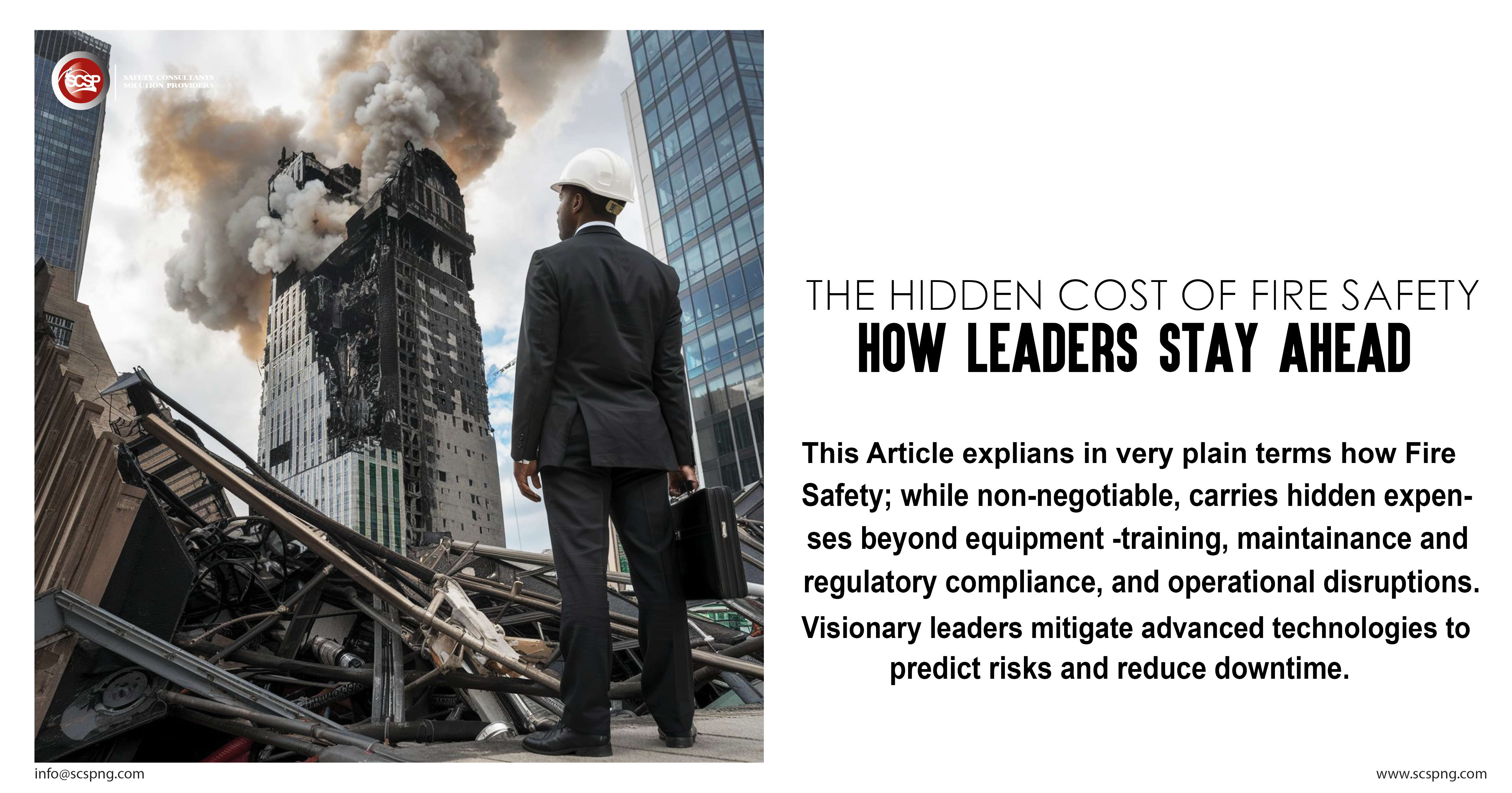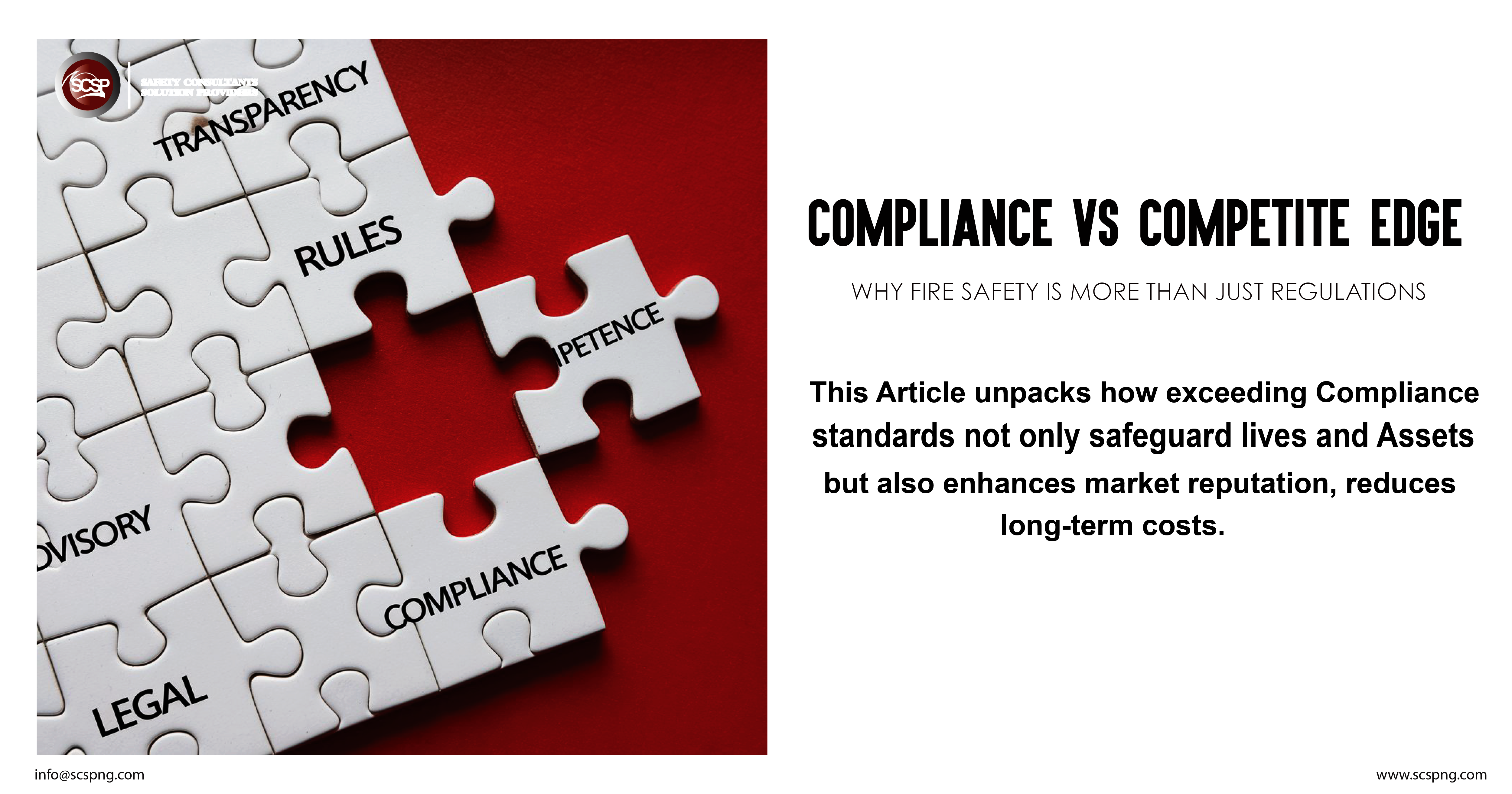Poor Fire Risk Assessment results in weakness in electrical risk assessments and noncompliance. RAGAGEP, codes, and standards, like IBC, BS, NFPA, IEC, ISO play an important part when used in scoping, design basis, operations, and maintenance philosophies. It is also a multi-disciplinary exercise involving risk engineers, HSE Engineers, Occupational and Technical safety Experts.
Common sources of electrical faults are resulting in disastrous fires include:
a. FAILURE IN ENGINEERING DESIGN
A team of specialists works together to address concerns on the statement of use, facility & service type, occupancy type, and loading. These form the basis of fire risk identification, analyzation and evaluation thus a provide an adequate Life and Fire Philosophy and Strategy that guides system engineering, specification, installation, commissioning, and maintenance. This is especially required in special hazard areas. These include critical infrastructure like telecom, healthcare, power backup; automobile, aviation facility, marine facility, chemical process plants, power stations, oil and gas facility, metallurgical and other extractive industries facilities.
b. EQUIPMENT SPECIFICATION AND QUALITY WEAKNESS
Poor enforcement of quality control and quality assurance process in selecting processes electrical installation products results in circulation and use of substandard products at the project implementation stage. These products end up as failures that contribute to fire hazards. This may be due to poor specification or not following specifications at all.
c. CONSTRUCTABILITY FAILURE (CONTRACTOR SELECTION, INSTALLATIONS & COMMISSIONING WEAKNESS)
This is possible when the implementation of engineering services following laid down construction, fabrication, installation, and commissioning procedures and methodologies as can be found in the drawing notes, drawing details, installation manuals, material acceptance certificates, specifications, and method statements are not adhered to.
d. CHANGE OF PRODUCT USE
When there is a change of engineering services and products use from their original purpose. This may lead to overburden or underutilization of such engineering systems and products, culminating in system abuse. Such misuse may lead to exceeding engineering design thresholds and affect specified systems requirements, increasing exceed the risk of system faults or failures capable of propagating fire hazards.
e. ELECTRICAL SURGE
Electrical surges may escalate to the point of causing a fire outbreak. Many factors may lead to a power surge. Preventive operational risk management measures can mitigate through life and fire safety engineering.
f. EARTHING OF ELECTRICAL SERVICES AND LIGHTING STORMS
Failure in earthing of electrical systems and earth bonding is also a common cause. Again, proper engineering services may help to reduce the likelihood of this happening.
The above reasons clearly show that the engineering design of mechanical, electrical, and plumbing services in a property is just a phase in getting mitigation of fire risks.
RISK ENGINEERS carries out specialized system and service risk assessment and provides tailored risk reduction solutions after evaluation. When the fire risk performance of a property is improved upon, it is leveraged to achieve a highly optimized engineering with risk reduction to ALARP.
Data in Table: Established Cases of Fire Disaster in Imo State (Source: Obasa O. O. et al – Reference 1) highlights the root cause for Imo State a leans credence to the importance of specialist involvement in the FRA, Design, Ibarra, and Engineering of electrical systems as a need to prevent fire disasters.
| Established Cases of Fire Disaster in Imo State | |||||
| S/No | Commercial Buildings Gutted Fire | Causes of the Fire Incident | Value of Property Destroyed | Estimated Number of Lives Lost | Year of Occurrence |
| 1 | Chris Tee Filling Station, Road Safety Office, Egbu | Multi-Million Naira | 2010 | ||
| 2 | G. Tower Hotel, Port-Harcourt Road | Electrical Fault | Multi-Million Naira | 2012 | |
| 3 | Sea Master Industry, Orlu | Gas Explosion | Multi-Million Naira | 4 | 2014 |
| 4 | INEC Office, Nwaoruibi, Mbaitoli LGA | Petrol Generator | Multi-Million Naira | 2015 | |
| 5 | Two Imo State Polytechnic Students at their lodge, Mgbirichi | Gas Explosion | Multi-Million Naira | 2 | 2016 |
| 6 | Pretoria Hotel and Suites, Owerri | Electrical Fault | Multi-Million Naira | 2016 | |
| 7 | Stone Castle Hotel, Owerri | Electrical Fault | Multi-Million Naira | 2017 | |
| 8 | Gas Explosion, Amawire, Okigwe Road, Owerri | Gas Explosion | Multi-Million Naira | 2 | 2017 |
| 9 | Newton Hotel, Owerri | Gas Explosion | Entire Building | 2017 | |
| 10 | Imo State Deputy Governor‟s House, New Owerri | Electrical Fault / Bush Burning | Multi-Million Naira | 2018 | |
| 11 | Tetlow Plaza, Owerri | Faulty Electrical Appliances | Multi-Million Naira | 2018 | |
| 12 | Night Club and Lounge, Owerri | Electrical Fault | Multi-Million Naira | 2018 | |
| 13 | Old Stadium Plaza, Owerri | Electrical Fault | Multi-Million Naira | 2018 | |
| 14 | All Progressive Congress (APC) Office, Okigwe Road, Owerri | Generator | Multi-Million Naira | 2018 | |
| 15 | Ibari Ogwa Entertainment Spot, Portharcourt Road, Owerri | Electrical Fault | Multi-Million Naira | 2018 | |
| 16 | Imo State University, Faculty of Humanities, Owerri | Electrical Fault | Academic Documents | 2019 | |
| 17 | Sam Mbakwe Airport, Owerri | Electrical Fault | Multi-Million Naira | 2019 | |
| 18 | The Independent National Electoral Commission‟s (INEC) Office, Isiala Mbano, Imo North | Electrical Fault | Election Documents | 2019 | |
References
- IOSR Journal of Environmental Science, Toxicology and Food Technology (IOSR-JESTFT) e-ISSN: 2319-2402, p- ISSN: 2319-2399.Volume 14, Issue 5 Ser. I (May 2020), PP 07-15; Critical Analysis of Causes and Effects of Fire Disaster on Buildings in Imo State by Obasa O. O. S et al.
https://www.iosrjournals.org/iosr-jestft/papers/Vol14-Issue5/Series-1/B1405010715.pdf
- A thesis submitted to the Department of Planning, Kwame Nkrumah University of Science and Technology; Assessment of Domestic Fire Management in Kumasi Metropolis by Amoako Thomas.
https://citeseerx.ist.psu.edu/viewdoc/download?doi=10.1.1.900.3024&rep=rep1&type=pdf
- Statistical Analysis of Fire Outbreaks in Homes and Public Buildings in Nigeria: A Case Study of Lagos State by Adebayo Adekunle et al.
https://www.researchgate.net/publication/327017484
ALSO READ:
- QUALITY AS A MEASURE OF PERFORMANCE IN THE CONCEPT AND ENGINEERING PHASE OF A FIRE PROTECTION SYSTEM DEVELOPMENT
- CONSTRUCTABILITY STUDY AS A PROJECT QUALITY ASSURANCE PROCESS IN SAFETY AND SECURITY ENGINEERING
- THE RELEVANCE OF CODES AND STANDARDS IN SAFETY AND SECURITY ENGINEERING









